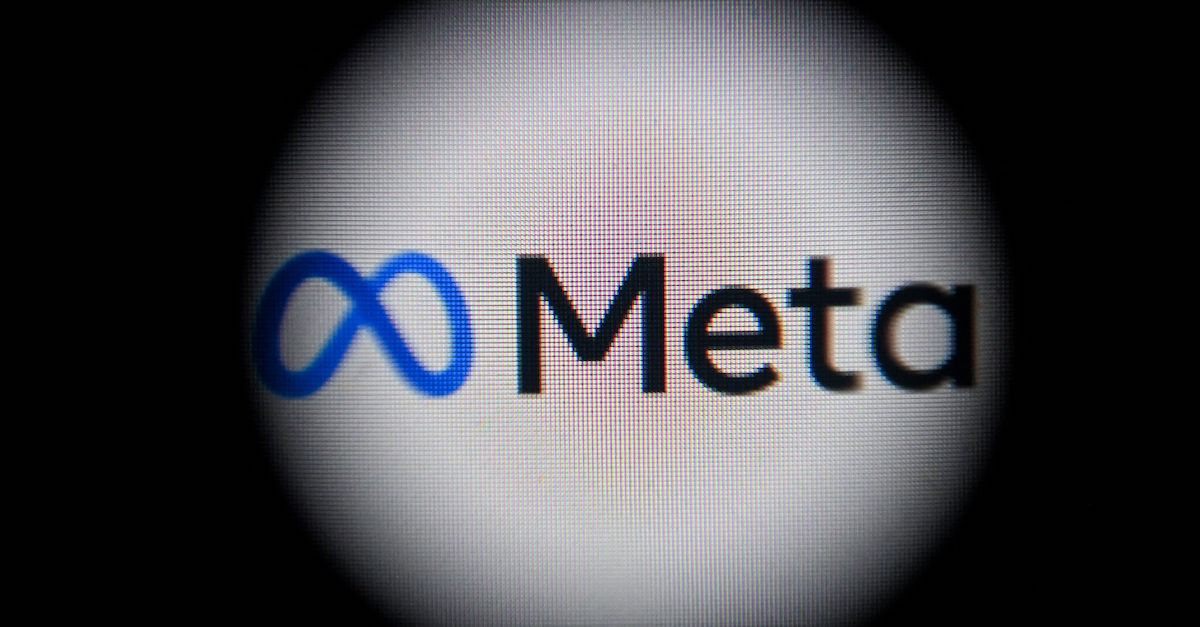
(Illustration photo by KIRILL KUDRYAVTSEV/AFP via Getty Images.)
A federal judge this week ordered Meta Platforms Inc. and its outside law firm to pay some $925,078 for making litigation unfairly difficult and expensive for their opponents in a data privacy lawsuit in California.
U.S. District Judge Vince Chhabria in San Francisco granted the plaintiffs’ motion for sanctions on Thursday, ruling that Facebook‘s parent company and its law firm Gibson Dunn are “using delay, misdirection, and frivolous arguments” in a case alleging the social media giant shared private information with other companies.
“Unfortunately, this sort of conduct is not uncommon in our court system,” the judge wrote. “But it was unusually egregious and persistent here.
“To be sure, this amount is loose change for a company like Facebook, and even for a law firm like Gibson Dunn. But it’s important for courts to help protect litigants from suffering financial harm as a result of their opponents’ litigation misconduct.”
Chhabria said examples of some of the company’s responses to the plaintiff’s demands were that “it need not disclose to the plaintiffs what information it had collected about them unless it had shared that information with third parties” and “the plaintiffs were required to take at face value Facebook’s assertions about what information it had shared,” court documents said.
“Merely reciting this argument shows how ridiculous it is, but Facebook and Gibson Dunn repeated it over, and over, and over again — despite the presiding magistrate judge telling them many times that it made no sense.”
Meta and Gibson Dunn representatives did not immediately respond to Law&Crime’s requests for comment.
The judge’s order said Facebook witnesses and lawyers “deliberately prevented the plaintiffs from obtaining probative information during depositions.”
“For example, during a deposition of one Facebook employee whom Facebook designated to testify about the company’s information-sharing practices, a Gibson Dunn lawyer instructed the witness not to answer at least 22 times, asserting that the questions were beyond the scope of the deposition notice,” court documents said. “Many of these questions were obviously within the scope of the notice.
“It is improper to instruct a corporate witness not to answer a question based on scope,” the judge wrote. “The witness herself emulated her lawyer’s belligerence, refusing to answer questions without even waiting for an objection. Eventually, the deposition became so hostile that the witness stated she would do her own ‘bitching and moaning’ about the plaintiffs’ questions.”
Facebook and Gibson Dunn, the judge said, had the “audacity to accuse the plaintiffs’ lawyers of delaying the case,” and asserted that the plaintiffs’ efforts to obtain relevant discovery were frivolous, court records said.
“It’s almost as if Facebook and Gibson Dunn spent the better part of three years trying to gaslight their opponents, not to mention the Court,” the filing states. “Sometimes lawyers and their clients engage in conduct of this sort because they are incompetent. Facebook and Gibson Dunn are not incompetent. Sometimes lawyers reflexively oppose the other side’s requests without giving any thought to their actions. That does not seem like Facebook and Gibson Dunn.
“Instead, the Court finds by clear and convincing evidence that Facebook and Gibson Dunn’s conduct reflected a sustained, concerted, bad-faith effort to throw obstacle after obstacle in front of the plaintiffs — all in an attempt to push the plaintiffs into settling the case for less than they would have gotten otherwise.”
Have a tip we should know? [email protected]